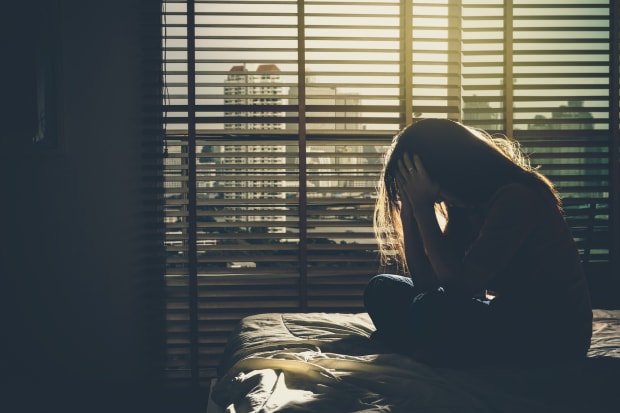The last few years have seen some revolutionary progress when it comes to publicly acknowledging the need to prioritize mental health. A year or more spent at home thanks to covid-19 protocols served as a catalyst for the conversation, with many people working through depression and anxiety by sharing their experiences on social media or, at the least, with a talk therapist.
Conversations about mental health go hand-in-hand with the concept of "self-care". Anything you do in pursuance of your own well-being is considered self-care. According to commercials, self-care looks like luxurious bubble baths, sheet masks, and scented candles. And it can look like those things – along with nurturing your own emotional wellbeing.
The act of pampering yourself is so often a vehicle for relaxing, unwinding, and taking a long pause to invest in your own joy. And thanks to the contribution of beauty influencers and lifestyle brands, there's a strong associative link between the beauty industry and the all of the mental health benefits that come along with self-care activities.
This week, L'Oreal-owned (LRLCY) cosmetics brand Maybelline has made a move to flip the script on the connection between personal care and mental health. Through its Brave Together initiative, the company has joined forces with mental health professionals, as well as tapping into already-established resources, to destigmatize anxiety and depression and raise awareness about the importance of mental health.

Maybelline NY Brings 'Brave Talk' To The Next Generation
According to Maybelline’s Global Brand President Trisha Ayyagari, the company “has always believed in the power of making things happen in your life, and we know that mental health is critical in feeling ready to do that. We want to use our brand’s global reach to drive this conversation and make support easily accessible.”
Now, Brave Together wants to bring its mission to colleges around the U.S. To do this, it's partnering with The Jed Foundation, a non-profit that promotes emotional wellness and suicide prevention in young adults. After losing their son to suicide in 1998, founders Phil and Donna Satow created The Jed Foundation to serve as a blueprint for how schools, kids, and parents could talk about mental health.
Together the two organizations are launching Brave Talk, a training program aimed at equipping students with tools to support those around them who may be struggling with mental health issues. Participants will learn about the signs indicating a friend may be struggling and learn how to get them connected with qualified care.
The program will start at New York University later this month. Maybelline plans to expand Brave Talk training to other institutions in the area, and eventually across the nation.
Beauty Companies Supporting Mental Health
Maybelline's mental health initiatives are uncommon, but not unheard of. Other companies are using the connection between beauty and wellbeing to start proactive conversations about mental health as well.
Coty Inc. (COTY) owns Philosophy, a skin care company that founded the Hope & Grace Foundation, a program that provides grants to pay for mental health services for women and their families. Unilever PLC (UL) soap brand Dove has also made strides with the Self Esteem Project, which brings self esteem education to parents, teachers, and youth leaders.




.jpg?w=600)


